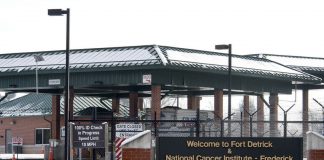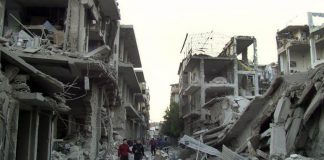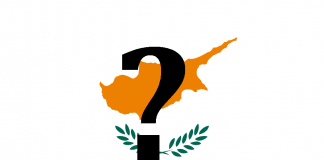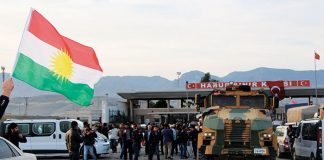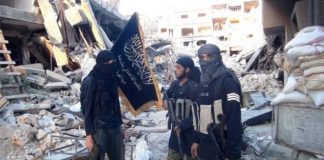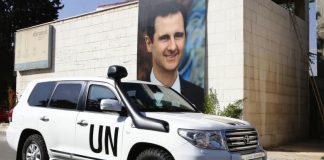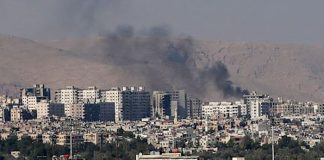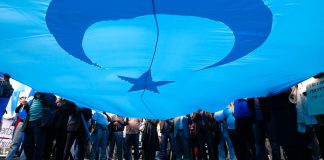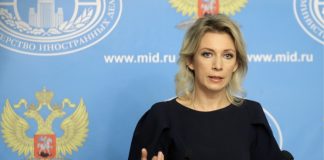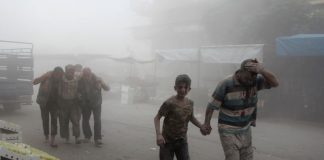Turkey
Turkey: Oncology and Geopolitics
Like the Russian president, Mr. Erdogan did not shrink from challenging the existing status-quo, claiming for Ankara the status of leader of the Muslim world. From the point of view of the Western elite, both of these politicians have signed their own death warrants with such declarations.
Destroying Syria: a Joint Criminal Enterprise
The Avaaz petition does not aim to end the war and restore peace. It clearly aims to obstruct the Syrian government offensive to retake Aleppo. The Syrian army has undergone heavy losses in five years of war, its potential recruits have in effect been invited to avoid dangerous military service by going to Germany. Syria needs air power to reduce its own casualties. The Avaaz petition calls for crippling the Syrian offensive
HAS THE REPUBLIC OF CYPRUS TAKEN THE ROAD OF NO RETURN?
The travails of Cyprus (population: 82% Greek, 18% Turkish) look never-ending: forty-two years of unbroken Turkish occupation (starting in 1974) of 37% of its territory and 54% of its shores and 40000 occupation troops poised aggressively on its territory at the time of writing. The occupied areas of Cyprus are basically run as a Turkish Pashalik (province) of
Iraq requests U.N. emergency meeting on Turkish troops in north
Turkey's parliament voted last week to extend the deployment of an estimated 2,000 troops across northern Iraq by a year to combat "terrorist organizations" - a likely reference to Kurdish rebels as well as Islamic State. Iraq condemned the vote, and Prime Minister Haider al-Abadi warned Turkey risked triggering
Disobeying Obama, playing with Jihad – a “state inside the state”
Murphy’s report makes clear the CIA disdain for combatting ISIS (though this altered somewhat with the beheading of American journalist James Foley in August 2014): “With the CIA wanting little to do with anti-ISIS operations as they are focused on bringing down the Assad regime, the agency kicked the can over to 5th Special Forces Group. Basing
Assad’s Death Warrant
Washington is the hands-down regime change champion, no one else even comes close. That being the case, one might assume that the American people would notice the pattern of intervention, see through the propaganda and assign blame accordingly. But that never seems to happen and it probably won’t happen here either. No matter how compelling the
Syrian Conflict Escalates
Speaking before a United Nations Security Council meeting on Syria Wednesday, US Secretary of State John Kerry demagogically blamed Russia and the government of President Bashar al-Assad for the escalating violence that has left a ceasefire reached earlier this month in tatters.
THE EAST TURKESTAN ISLAMIC MOVEMENT
According to some very recent official Syrian sources, last April over 5,000 jihadists entered from the Turkish border, heading for Idlib and Aleppo. They include an undefined – albeit considerable - number of Uyghurs coming from the Chinese Xinjiang. Allegedly the technical and operational support to this new jihad was provided by the Turkish services and special
Russia warns West over Cyprus
Russian Foreign Ministry Spokesperson Maria Zakharova, said that Western partners’ persistent attempts to speed up negotiations on Cyprus issue and push for a solution at all costs are unacceptable
Fighting rages on in Syria
The US and Russia have committed to a ceasefire beginning Monday at sunset, which is to last for a week over the Eid holiday. The US-backed rebel groups are supposed to cease attacking government-held areas, although it appears increasingly likely that some rebel groups will refuse to implement the deal. The Assad government has agreed to allow humanitarian supplies into Aleppo.
